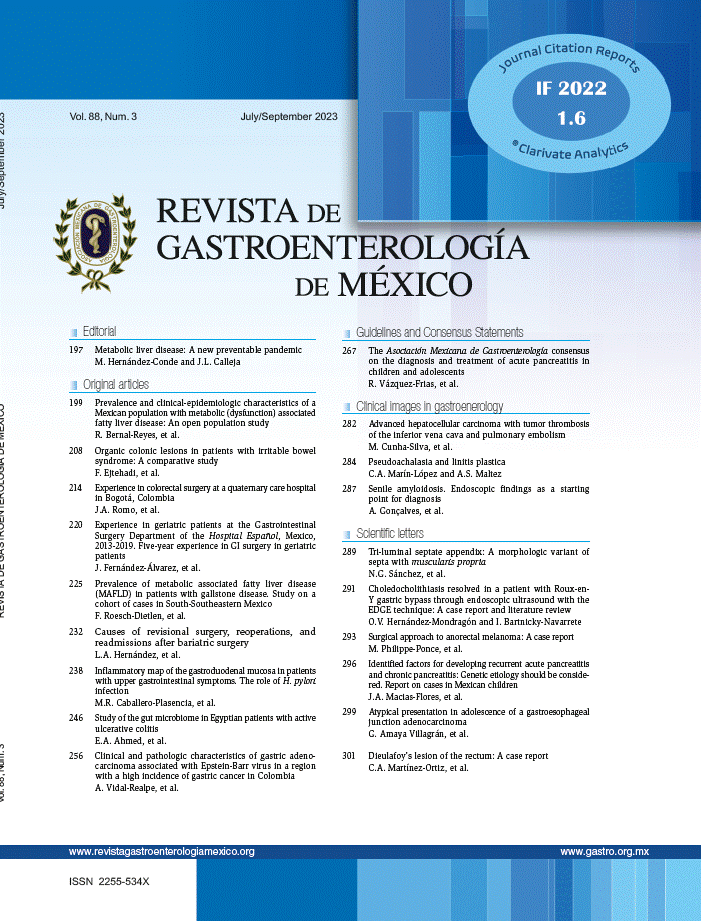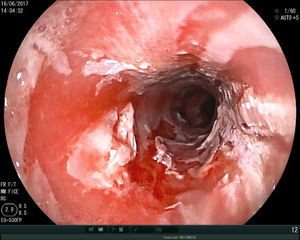A 31-year-old female engineer had an unremarkable personal and family medical history. She sought medical attention due to intense, burning, and incessant pain in the epigastrium at the level of the chest of 24-h progression. The patient stated she had taken an oral dose of 200mg/day of pinaverium bromide for 5 days due to the recent diagnosis of irritable bowel syndrome. She did not present with heartburn or regurgitation and had taken no other medicines or caustic agents. Pain of cardiac origin was ruled out and upper gastrointestinal endoscopy was ordered. That study revealed severe esophagitis at the distal level, with normal gastric mucosa (fig. 1).
The anatomopathologic study reported severe esophagitis, with necrosis and ulceration of the epithelium and leukocytic infiltrate (fig. 2).
Esophagitis caused by pinaverium bromide ingestion was highly suspected and the treatment was suspended, resulting in rapid symptomatic improvement. At one month, control upper gastrointestinal endoscopy revealed complete healing of the mucosa (fig. 3).
Esophageal lesions induced by pinaverium bromide are a little-known complication. Isolated cases have been reported.1–3 However, because the medication is frequently used, it is important to be aware of its possible lesion-producing association, as illustrated by the present case.
Financial disclosureNo specific grants were received from public sector agencies, the business sector, or non-profit organizations in relation to this study.
Conflict of interestThe authors declare that there is no conflict of interest.
Please cite this article as: Avendaño K, Calleri A, González N. Esofagitis severa por bromuro de pinaverio. Revista de Gastroenterología de México. 2018;83:455–456.










